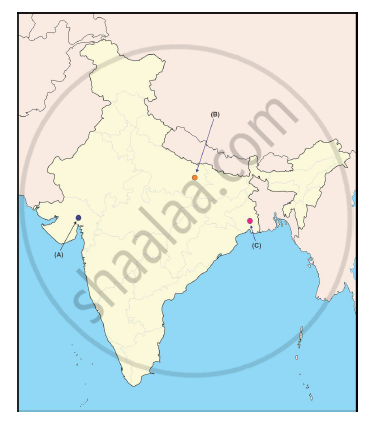Advertisements
Advertisements
Question
How do pressure groups and movements strengthen democracy? Explain.
Solution
Pressure groups and movements certainly have an impact on our Democracy.
It is argued at times that groups and movements tend to disrupt public order, they may wield excessive power and influence on the government without being accountable and responsible to anyone, they tend to accumulate money and have a narrow outlook as they focus on a particular issue catering to a particular section of society but the importance of these groups and movements cannot be ignored rather they have influenced the political system in the following manner and that their influence is desirable for the very reason they have strengthened and expanded our democracy:
a. They have raised the democratic consciousness of the people.
b. These movements have deepened democracy, they have ensured greater participation of people through meetings, processions making people more aware and vigilant.
c. They have rather helped in the due representation and accommodation of diverse interests.
d. They have put pressure on the government making it more accountable and responsive to the needs of the people.
e. They have ensured a balance of power among different conflicting groups and interests.
f. Their influence has ensured greater transparency in the functioning of government as they strive for good governance.
Right to Information, Lok Pal, Domestic Violence Act are rather the result of their influence.
APPEARS IN
RELATED QUESTIONS
Why did Gandhiji decide to launch a nationwide Satyagraha against the proposed Rowlatt Act, 1919? Explain.
Describe their public interest pressure groups functioning
Why did Mahatma Gandhi decide to call off the Civil Disobedience Movement? Explain.
Describe the popular struggle of Bolvia.
Three Features A, B and C are marked on the given political outline map of India. Identify these features with the help of the following information and write their correct names on the lines marked in the map:
A. The place where the cotton mill workers organized Satyagraha.
B. The place related to the calling off the Non – Cooperation Movement.
C. The place where the Indian National Congress Session was held.

Which one of the following political parties came to power in Bolivia in 2006?
(A) The Communist Party
(B) The Republican Party
(C) The Socialist Party
(D) The Conservative Party
"Pressure groups and movements exert influence on politics in different ways." Support the statement with suitable examples.
Why did Mahatma Gandhi find in 'salt' a powerful symbol that could unite the nation? Explain.
Which one of the following was the main reason for Mahatma Gandhi to call off the Non-Cooperation movement in 1922?
(A) The Jallianwala Bagh incident
(B) Khilafat movement
(C) The passing of the Rowlatt Act
(D) The Chauri-Chaura incident
Match List I with list II and select the correct answer using the codes given below the lists:
|
List I |
List II |
||
|
1. |
Pressure group |
Α. |
Narmada Bachao Andolan |
|
2. |
Long-term movement |
Β. |
Asom Gana Parishad |
|
3. |
Single issue movement |
C. |
Women’s Movement |
|
4. |
Political party |
D. |
Fertilizer dealers’ association |
|
1 |
2 |
3 |
4 |
|
|
(a) |
D |
C |
A |
B |
|
(b) |
B |
A |
D |
C |
|
(c) |
C |
D |
B |
A |
|
(d) |
B |
D |
C |
A |
